
A comparison consequentialism vs deontology vs virtue ethics Artofit
Consequentialism, also known as teleological ethics, is an ethical theory that focuses on the consequences or outcomes of actions. According to this perspective, the morality of an action is determined solely by its consequences. In other words, the rightness or wrongness of an action is evaluated based on the overall outcome it produces.

PPT What is Ethics PowerPoint Presentation, free download ID437065
Deontology's Foil: Consequentialism Because deontological theories are best understood in contrast to consequentialist ones, a brief look at consequentialism and a survey of the problems with it that motivate its deontological opponents, provides a helpful prelude to taking up deontological theories themselves.
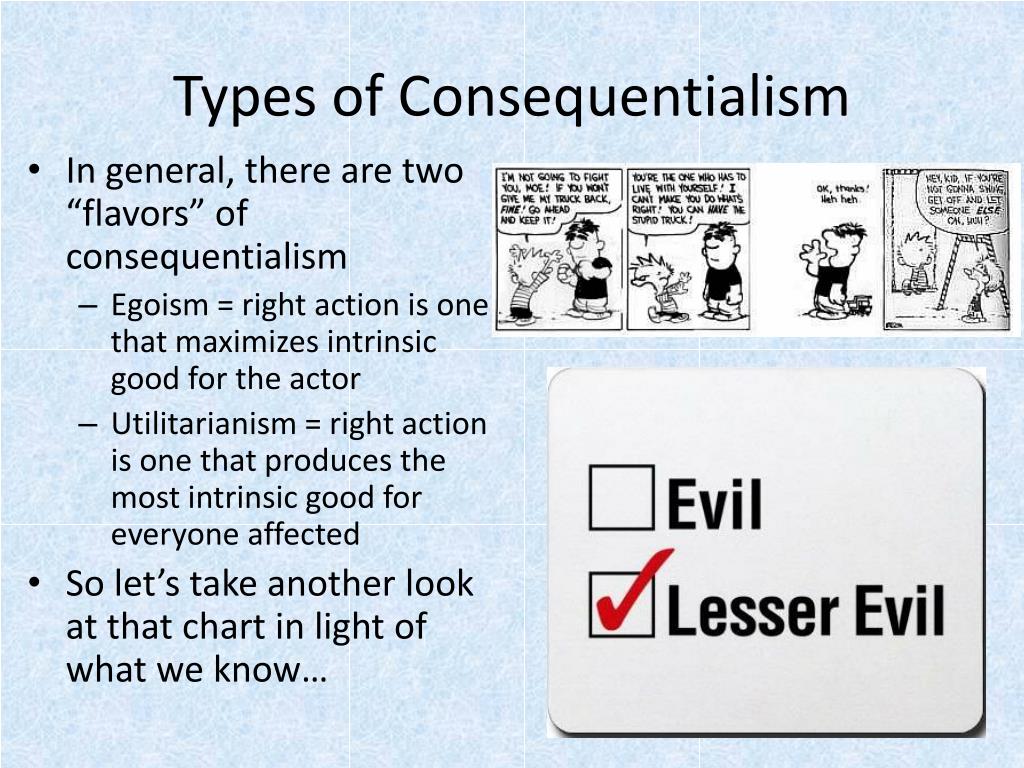
PPT An Introduction to Consequential and Deontological Theories of Ethics PowerPoint
The answer is not so simple. Both deontology and consequentialism have their strengths and weaknesses, and each can be applied in different situations. In the following sections, we will take a closer look at each theory and examine its key features. Define Deontology
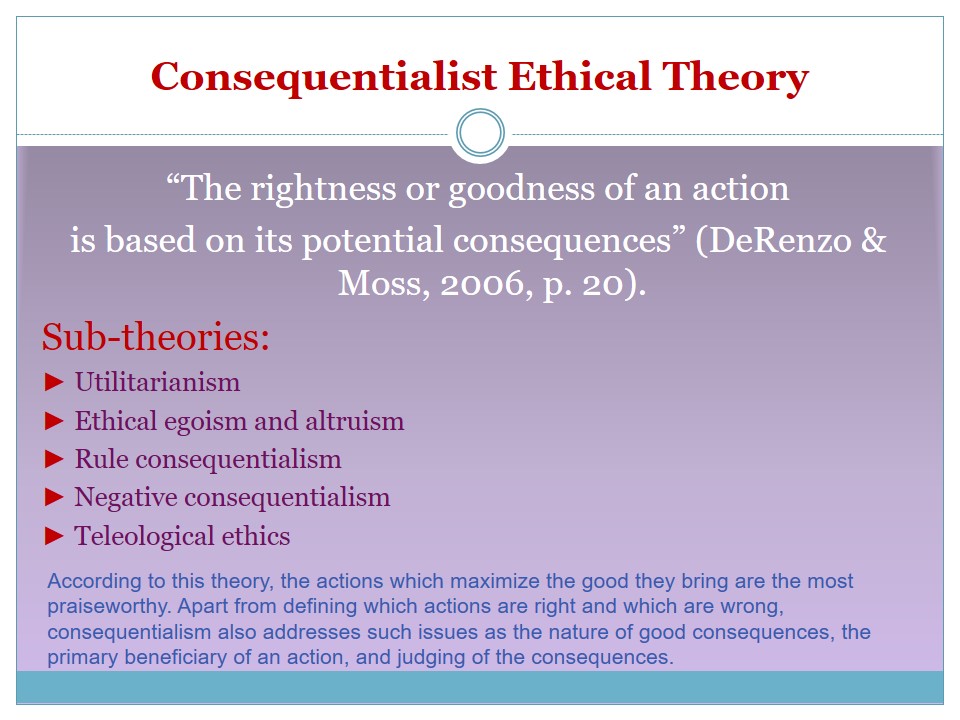
Deontological Ethics Example
The main difference between deontology and consequentialism is that deontology focuses on the rightness or wrongness of actions themselves. Whereas, consequentialism focuses on the consequences of the action. Deontology and consequentialism are two contrasting, normative ethical theories that determine the morality of an action.
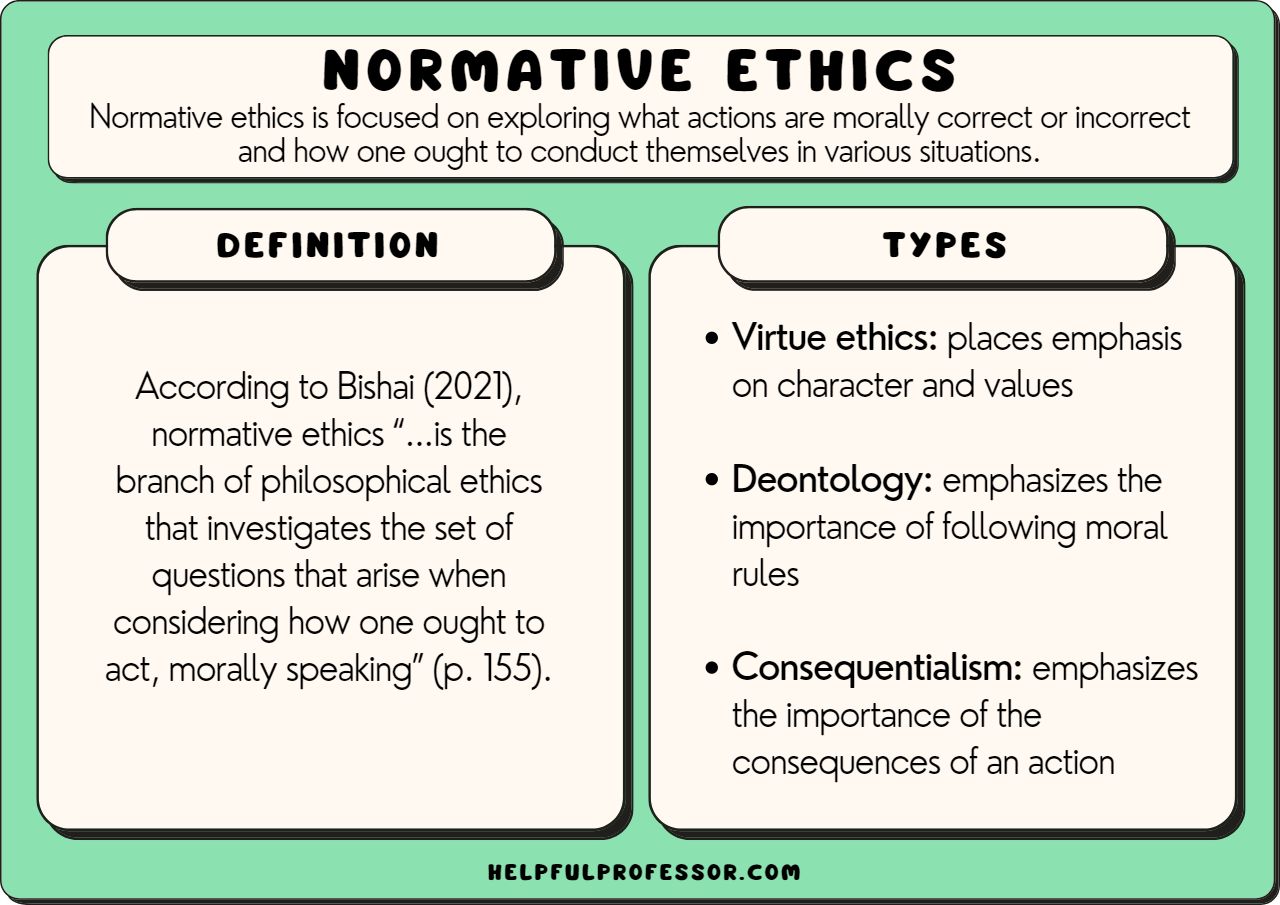
Normative Ethics Theories (with Examples) (2023)
This chapter first examines Sidgwick's critique of deontology and defence of consequentialism, arguing that it is repeatedly unfair, holding the principles it criticizes to standards Sidgwick did not apply to his own consequentialist axioms, and in particular fails by lacking Ross's concept of prima facie duty; this shows both in Sidgwick's crit.
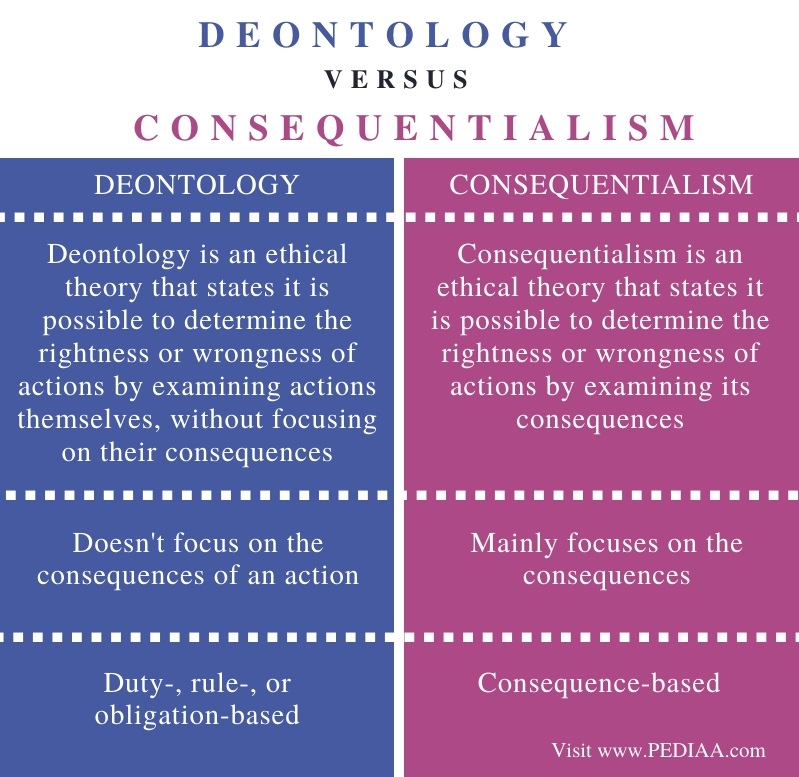
Definition of Non Consequentialism in Ethics DouglasaxMcgee
However, consequentialism focuses on judging the moral worth of the results of the actions and deontological ethics focuses on judging the actions themselves. Consequentialism focuses on the consequences or results of an action.
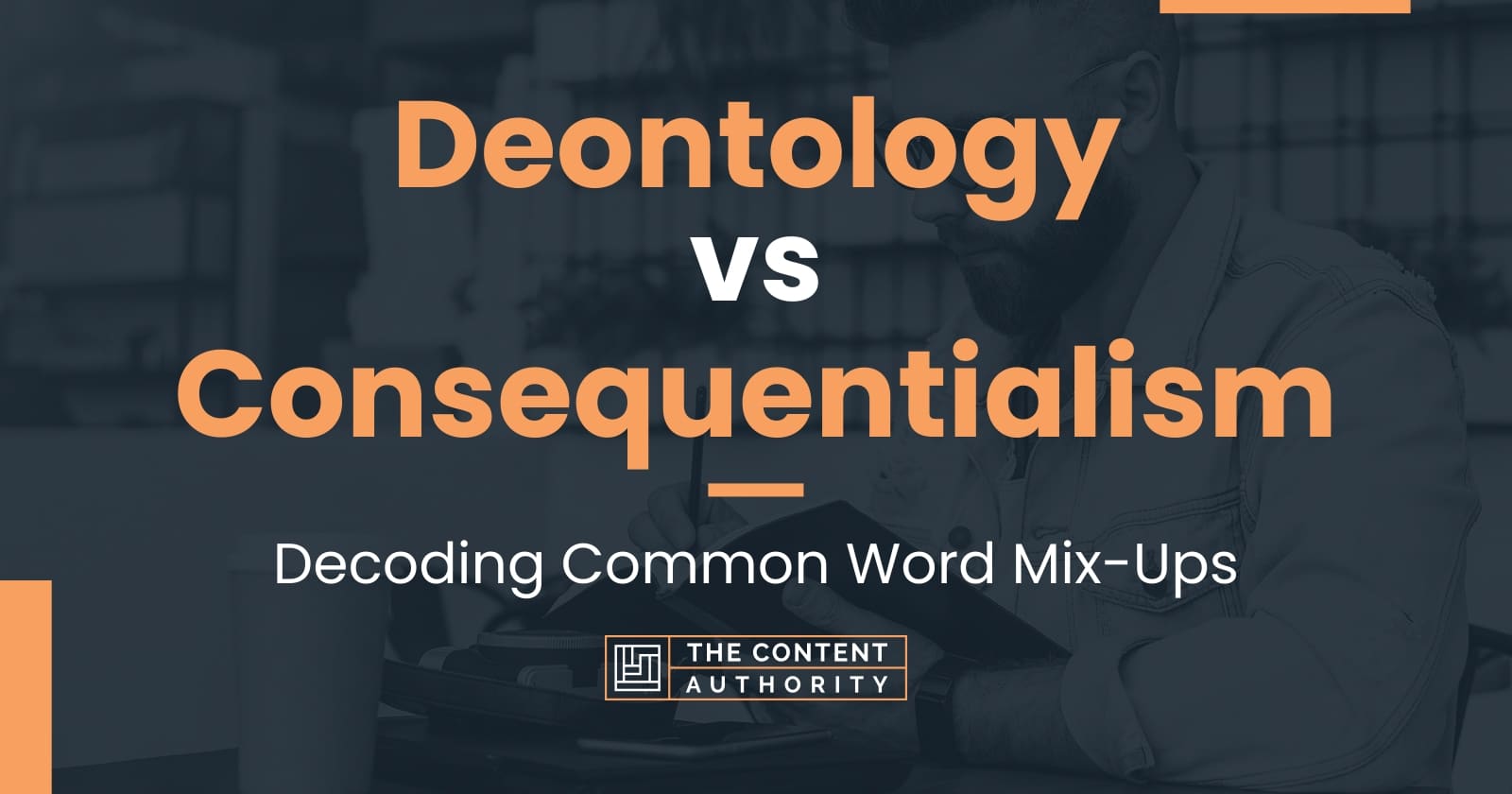
Deontology vs Consequentialism Decoding Common Word MixUps
Consequentialism is the belief that the consequences of one's actions are what determine whether those actions are right or wrong. In other words, the end justifies the means. Deontological ethics, on the other hand, is based on the idea that certain actions are inherently right or wrong, regardless of their consequences.

Normative Ethical Theories Deontology, Consequentialism, & Virtue Ethics BIOETHICS YouTube
07 June 2018 Annotate Cite Permissions Share Abstract This chapter advances two main claims. First, that the distinction between consequentialism and deontology, although widely adopted, is illusory and only serves to obscure some of the genuine disputes underlying central debates in distributive justice.

10 Consequentialism Examples (2023) (2023)
VIRTUE ETHICS, DEONTOLOGY, AND CONSEQUENTIALISM 2 1. Introduction In the field of ethics, various theories have attempted to set themselves apart as the "right" one, i.e., as superior to the rest.

Deontological Consequential Ethics Consider these quotes The remarkable
Consequentialism is usually contrasted with deontological ethics (or deontology ): deontology, in which rules and moral duty are central, derives the rightness or wrongness of one's conduct from the character of the behaviour itself, rather than the outcomes of the conduct.
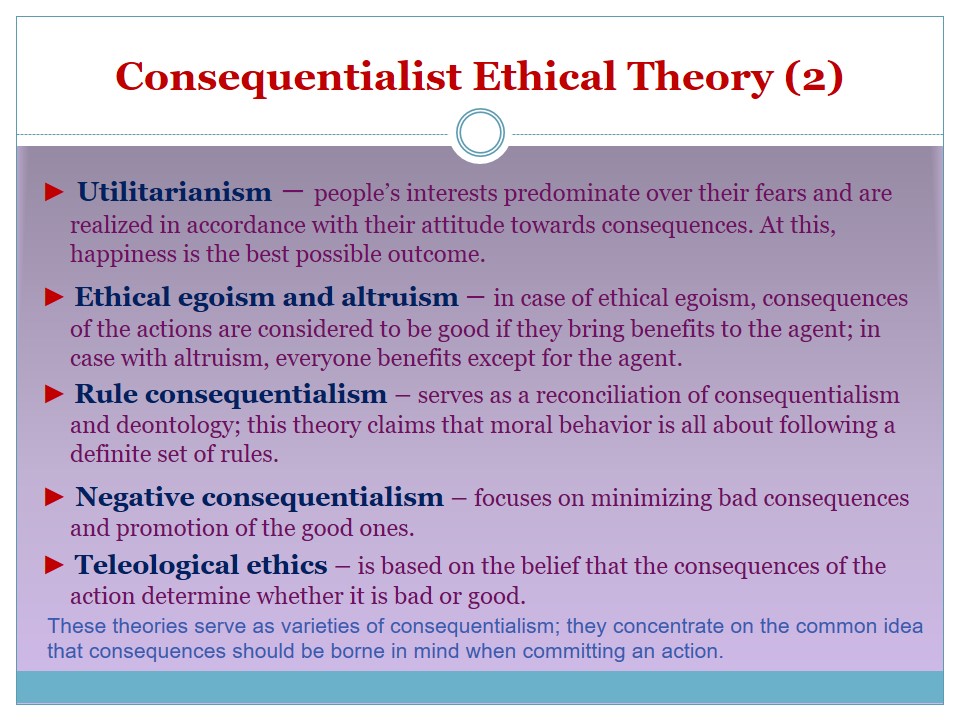
similarities between deontology and consequentialism
Virtue Ethics. Virtue ethics is currently one of three major approaches in normative ethics. It may, initially, be identified as the one that emphasizes the virtues, or moral character, in contrast to the approach that emphasizes duties or rules (deontology) or that emphasizes the consequences of actions (consequentialism).

PHI 204 Ethical Issues in Health Care Consequentialism, Deontology
Virtue Ethics Consequentialism, deontology, and virtue ethics are moral theories that evaluate morality on the basis of different factors. This Buzzle post explains the consequentialism vs. deontology vs. virtue ethics comparison. Subtle Distinction

Definition Of Consequentialism In Ethics definitonjulb
Deontology is usually contrasted with consequentialism (and both with virtue ethics). Whereas consequentialists maintain that the right action is determined solely by its consequences, deontologists deny this and hold that the right action is not determined solely by its consequences.
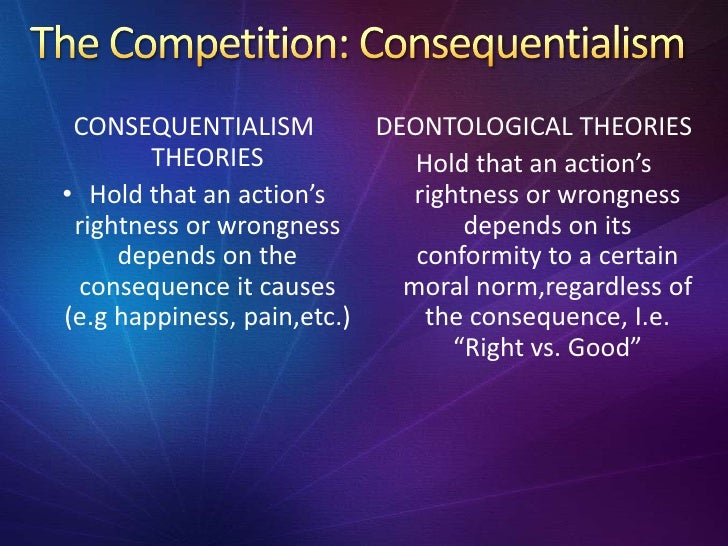
Deontological ethics 3.2
Consequentialism First published Tue May 20, 2003; substantive revision Wed Oct 4, 2023 Consequentialism, as its name suggests, is simply the view that normative properties depend only on consequences.

Comparing Consequentialism, Deontology, and Virtue Ethics
Deontology, consequentialism, act choices, and framing effects We manipulated framing (positive vs. negative) and act certainty (act with certain vs. risky outcomes). Deontological versus.
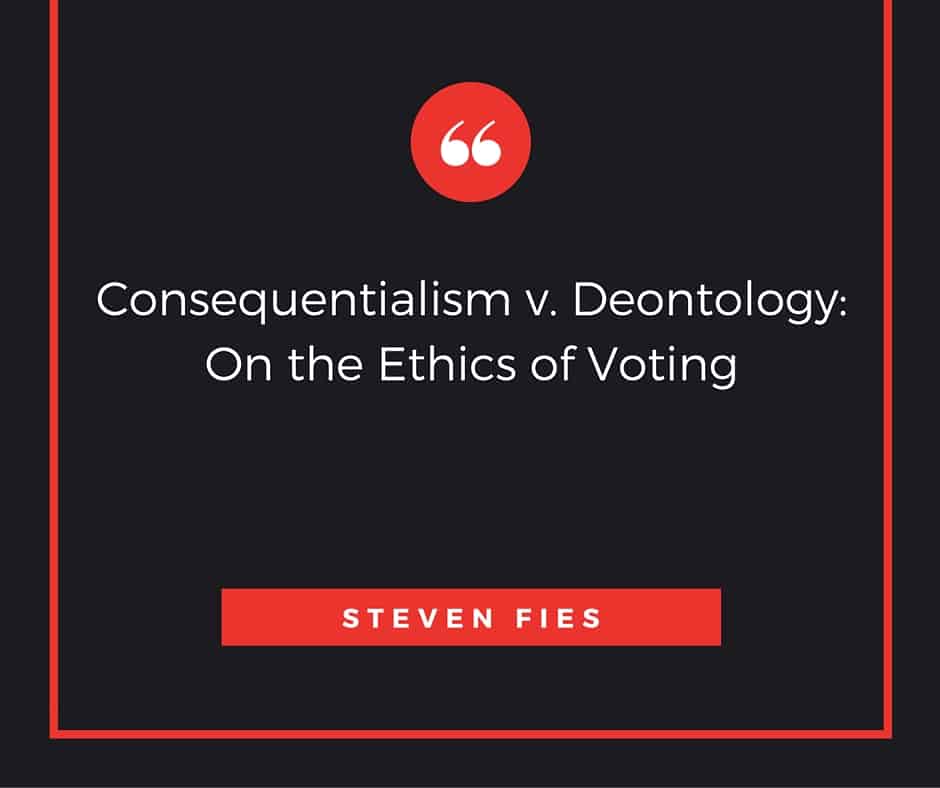
Consequentialism vs. Deontology On the Ethics of Voting
In this lecture, Professor Adrian Moore (University of Oxford) explores the difference between the three main strands of moral philosophy -consequentialism,.